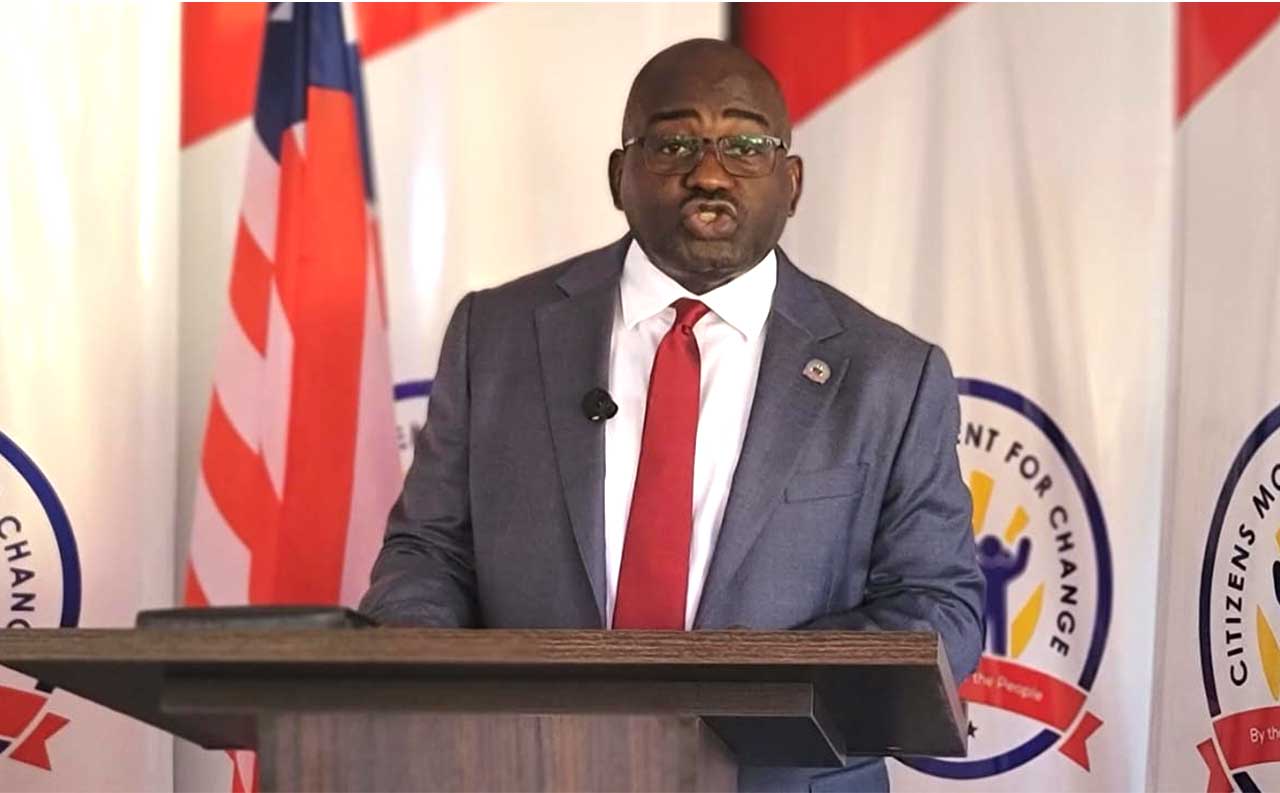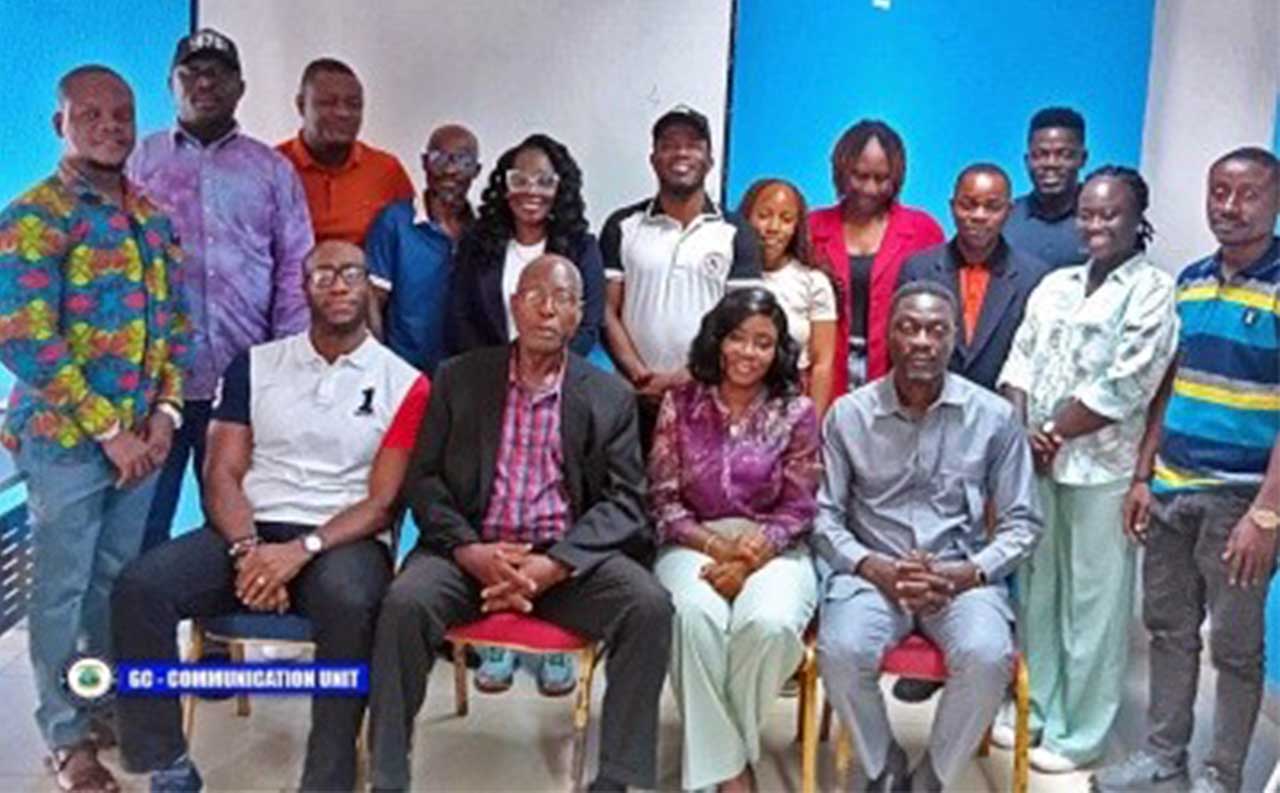The political leader of the Citizens Movement for Change (CMC), Musa Hassan Bility, has sharply criticized President Joseph N. Boakai’s proposed US$1.2 billion national budget, labeling it as “a budget of lies” that fails to accurately represent the true state of the Liberian economy. Speaking at a press conference on Tuesday, November 11, 2024, at his party headquarters in Congo Town, Bility accused the Boakai administration of misleading the public with inflated figures and unrealistic projections. He warned that if the budget is passed without proper scrutiny, it could further deepen public mistrust and economic instability.
According to Bility, the budget illustrates a government adept at taxing and spending but neglectful of its sacred duty to build and serve the nation. “This is an ‘eating show’ budget, crafted for spectacle rather than substance—deception rather than development. It is a budget of illusion, built on fantasies and inflated by lies,” he asserted.
He elaborated, “The government-proposed budget for the 2026 fiscal year proudly claims over US$1.2 billion in expected revenue. However, nearly 17% of that figure, amounting to US$200 million, arises from a one-time payment by ArcelorMittal in 2026. Can a nation truly be built on a single windfall, mortgaged on the hopes of corporate generosity? We think not.”
Bility criticized the government’s characterization of fiscal expansion as growth, insisting that members of the CMC view it instead as reckless indulgence. The representative from Nimba County, District #7, noted that the legislative budget has increased by 25%, rising from US$41 million to nearly US$52 million, despite persistent underfunding of essential services.
Additionally, he pointed out that the national security budget has been raised by 45% to US$151 million, with an increase of over US$15 million, yet there has been little or no increase in police funding, which is crucial for the security and protection of the populace. He lamented the absence of reports or significant achievements while violent crimes and domestic insecurity remain rampant.
“Bureaucratic compensation now consumes over 27% of the total budget, rising from US$315 million to over US$327 million—an increase of US$14 million. Meanwhile, the sector that employs over 60% of Liberians and has the highest potential to sustainably feed our people, agriculture, receives barely 1% of the national budget—less than US$14 million. Furthermore, it receives far less funding than what is allocated to presidential advisors, meaning that all the presidential advisers earn more than the government’s investment in agriculture,” he stated.
Representative Bility emphasized the stark contrast: 1% for farmers versus 27% for bureaucracy. He noted that 17 out of 18 state-owned enterprises listed in the budget annex have failed to submit financial plans for review, undermining the integrity of the national budget process. According to him, this represents a clear violation of public financial management law and results in a lack of transparency regarding these entities’ financial positions. Consequently, the government cannot adequately assess or plan for necessary fiscal reports, rendering the overall budget less reliable and increasing fiscal risks due to unknown obligations and exposures; such circumstances are not indicative of growth.
Bility discussed the agenda of the Citizens Movement for Change, explaining that under the CMC’s proposed budget, the party aims to increase education funding. “The CMC will significantly increase the allocation for education by up to 15% in our first national budget and 20% in our second budget, with the goal of meeting the minimum requirements set by international best practices,” he asserted.
He promised that under his administration as President of Liberia, every child will have access to quality public education, modern educational facilities, and well-trained teachers. Bility stated, “We will implement entrepreneurship programs and vocational training that connect education directly to job opportunities, contrasting sharply with the current government’s limited investment in education.” The CMC leader noted that the proposed budget includes US$133 million for infrastructure, which he deemed woefully inadequate to meet the country’s critical and urgent infrastructure needs.
“Currently, only 15% of rural roads are passable year-round. We will increase the expenditure to US$220 million, targeted at developing and extending rural and feeder road networks and constructing bridges that connect our economy and our people. Additionally, we will invest in technology to enhance government efficiency, monitoring, and evaluation, as well as create opportunities for public-private partnerships to build and maintain critical infrastructure, including schools, research centers, and rural roads, alongside investments in macro and small-medium enterprises,” he stated.



